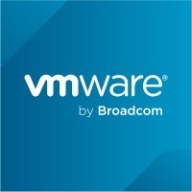

Oracle Cloud Infrastructure and VMware Tanzu Platform are key competitors in the cloud solutions category. OCI seems to have the upper hand due to its compatibility with Oracle products, ease of data management, and cost-effectiveness, while VMware Tanzu excels in facilitating hybrid cloud environments and Kubernetes management.
Features: Oracle Cloud Infrastructure offers significant advantages in database management, high availability, and flexible licensing. Its performance and cost competitiveness make it an appealing choice for enterprises utilizing Oracle products. VMware Tanzu focuses on hybrid cloud settings, providing smooth integration with existing VMware infrastructure. It particularly stands out in Kubernetes management, offering comprehensive tools for microservices and container-based architectures.
Room for Improvement: OCI can enhance scalability, its documentation, and increase geographical coverage to compete more effectively. Additionally, improving integration with non-Oracle tools is crucial. VMware Tanzu could improve its integration with non-VMware solutions and address pricing structures. Gaps in support for third-party tools and higher cost barriers are noted as areas for improvement.
Ease of Deployment and Customer Service: Oracle Cloud Infrastructure is preferred for enterprise-level deployments in public and hybrid cloud environments. Technical support receives mixed reviews, with calls for improved response times and problem resolution. VMware Tanzu emphasizes hybrid cloud solutions, with customers valuing its product integration. Its support services face similar critiques regarding speed and effectiveness.
Pricing and ROI: OCI offers competitive pricing and flexible licensing models, appealing to those with existing Oracle licenses. Users report substantial ROI due to operational optimization and cost-effectiveness. VMware Tanzu is seen as better suited for larger enterprises due to its higher price and bundled VMware services. Despite its higher cost, users note ROI from operational efficiencies and scalability.
| Product | Market Share (%) |
|---|---|
| Oracle Cloud Infrastructure (OCI) | 6.2% |
| VMware Tanzu Platform | 3.6% |
| Other | 90.2% |


| Company Size | Count |
|---|---|
| Small Business | 33 |
| Midsize Enterprise | 20 |
| Large Enterprise | 54 |
| Company Size | Count |
|---|---|
| Small Business | 10 |
| Midsize Enterprise | 3 |
| Large Enterprise | 10 |
Oracle Cloud Infrastructure offers autonomous database solutions, flexible scalability, and seamless application integration, backed by strong security features. Its competitive pricing and multi-tenancy capabilities provide significant value for enterprises needing comprehensive cloud infrastructure.
Oracle Cloud Infrastructure delivers robust database management, frequent updates, and advanced storage and network services. It boasts global pricing consistency and broad accessibility, making it a preferred choice for hosting databases and migrating on-premises applications. Users in diverse sectors rely on its ease of use, particularly in hosting applications and infrastructure management. However, OCI faces challenges in documentation and integration with third-party services and seeks improvement in automation, support responsiveness, and regional availability.
What are the key features of Oracle Cloud Infrastructure?OCI is utilized by companies in sectors like gaming, finance, and IoT for hosting databases and ERP systems. Its robust infrastructure supports high-performance computing and application development, making it a favorable option for integration and analytics tasks. Enterprises benefit from its capability to migrate on-premises systems to the cloud, enhancing their operational efficiency.
VMware Tanzu Platform is designed for cloud-native development and management of Kubernetes, CI/CD processes, microservices, and containerized workloads. It supports deployments both on cloud and on-premises, providing centralized management via Mission Control.
VMware Tanzu Platform offers seamless integration with vSphere, ESX, and vSAN, supporting centralized cluster management and lifecycle management. The platform provides a GUI for monitoring CI/CD pipelines and network policies, enhancing multi-tenancy and Day 2 operations. Users can easily manage Kubernetes clusters, monitor applications, and integrate with tools such as GitHub, GitLab, Cloud Foundry, and Azure. It ensures compliance and security for service providers, financial institutions, and businesses.
What are the key features of VMware Tanzu Platform?
What benefits and ROI should users look for in VMware Tanzu Platform reviews?
Industries such as financial institutions, service providers, and businesses requiring rigorous compliance and security deploy VMware Tanzu Platform. These entities benefit from centralized management, streamlined DevOps processes, and integrated tools, enhancing their capabilities in cloud-native developments and containerized workloads.
We monitor all PaaS Clouds reviews to prevent fraudulent reviews and keep review quality high. We do not post reviews by company employees or direct competitors. We validate each review for authenticity via cross-reference with LinkedIn, and personal follow-up with the reviewer when necessary.